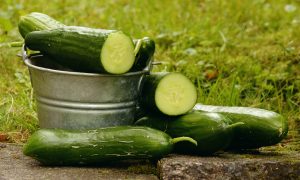Recently, a shipment of cucumbers from Serbia was stopped at the Croatian border, because the pesticide chlorpyrifos was allegedly detected in it. As a reminder, chlorpyrifos has been banned in the European Union for years.
According to the information available through the European Rapid Alert System for Unsafe Food (RASFF), these products from Serbia are marked as potentially risky. Nevertheless, the National Reference Laboratory of Serbia performed the analyses. She found that the cucumber samples were in accordance with the legal regulations of Serbia. The Ministry of Agriculture of Serbia emphasized that the shipment passed all the prescribed controls before export, including phytosanitary inspection, and a certificate for export was issued.
Izvor: Linda Chia
When the notification about stopping the shipment arrived, the Serbian authorities undertook additional analyzes of the control sample. The results of these analyses, carried out in the Directorate of the National Reference Laboratory, confirmed again that there were no deviations from the regulations. However, it remains unclear why the results of the analysis between the two countries do not match, which has caused additional speculation in the regional media. Croatian media recalled earlier incidents, such as the fact that chlorpyrifos was found in Serbian products such as dried porcini mushrooms, peaches and plums. This further fuels the debate about the safety of Serbian agricultural products on the EU market.
Chlorpyrifos, chlorpyrifos…the most expensive Serbian word (in agriculture)
Chlorpyrifos was banned in Serbia in 2021, with the possibility of its use until mid-2022. Although it has been officially withdrawn from sale, it can still occasionally be found on the black market, which worries experts. This pesticide has long been used in fruit growing because of its effectiveness in protecting crops from a large number of pests, but its use is prohibited due to its harmful effects on human health. However, due to its relatively low price and wide spectrum of action, some manufacturers continue to use it illegally, despite the ban.

Experts emphasize that producers are responsible for the safety of the food they place on the market. Therefore, regulations must be followed to avoid such incidents. The European Union carries out strict inspections, especially when food comes from countries outside the Union. This control further complicates the placement of products that do not meet their standards.
This case, where chlorpyrifos was found in cucumbers, points to several things. First of all, it focuses on the need for further strengthening of control and responsibility in agricultural production, in order to avoid situations that can damage the reputation of Serbian products on the international market.
Source: Politics
Source: boljazemlja.com


